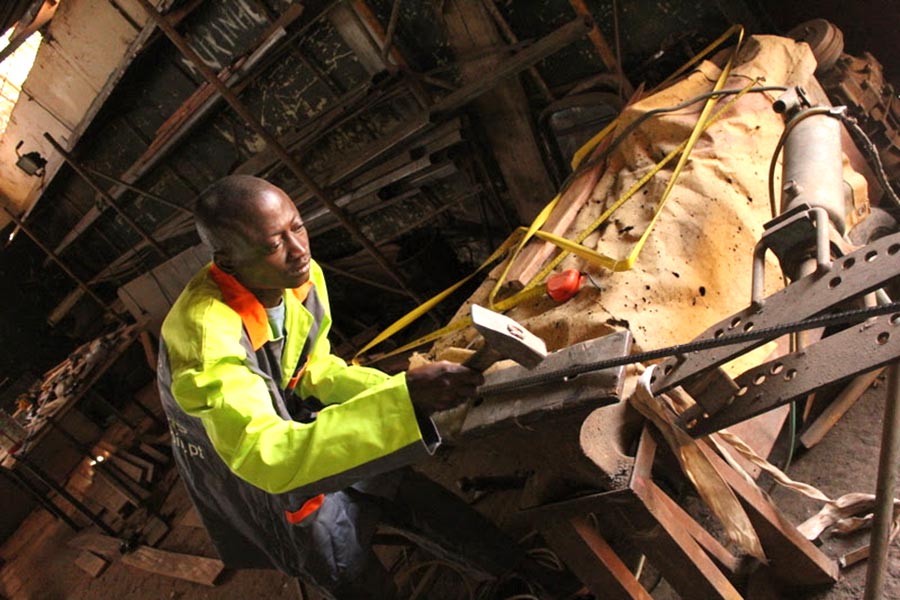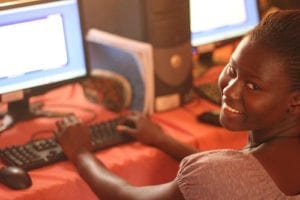Thanks to the opportunity Papa received to study welding at the WAVS School, and a lot of hard work and determination, he now has his own shop
PELUNDO, GUINEA-BISSAU – He’s gone by the name “Papa” his whole life, but soon he’ll be a father for the first time.
Papa Mendes, 32, and his wife are expecting their first child in a few months. But in Guinea-Bissau – one of the world’s smallest and poorest countries – providing for your family isn’t easy. The education system is in tatters; the economy is fragile; and steady jobs are rare.
“It was my dream to open my own shop,” Papa said. “My dream has now turned into reality.”
That dream didn’t come easily.
But Papa is determined. Every morning, he rolls off a thin, plastic mat that passes for a bed and walks out of his 10-by-10-foot mud-brick room. Outside, about 20 feet away under a shade tree, he lays out a handful of tools on a metal table, cranks up a generator, and goes to work.
Papa is the village welder. It’s not a glamorous job, but Papa couldn’t be happier.
“It was my dream to open my own shop,” said Papa, flashing his constant smile. “My dream has now turned into reality.”
That dream didn’t come easily.

***
Papa grew up in a tiny village. Every spring, he and his family would harvest cashews from the trees that surrounded their village and sell them. But cashews – Guinea-Bissau’s cash crop – are an unreliable source of income. The weather, environment, and global markets are constantly in flux. One year, the harvest would bring in enough cash for Papa’s family to survive the next 12 months; the next year, it would leave them destitute.
After his father died in 2011, Papa was determined to find a more reliable way to provide for himself and his family. He heard a radio ad about welding classes at the WAVS School in Canchungo, a town just a few miles from his village. The cost of the class was affordable – less than $10 a month. He immediately signed up.
“I didn’t want to just work in the fields my whole life,” Papa said. “I wanted a different profession – because in this world, things are always changing.”
With his quick smile and positive attitude, Papa was quickly elected by his fellow welding students as the chefe de alunos – the student representative for the class. Papa had never held a welding torch before, but over the next nine months he learned how to transform steel rods and metal sheets into chairs, tables, doors, and windows.
After graduating, a Portuguese businessman hired Papa to work at his welding shop. In February 2014, I went to visit Papa at the workshop. He smiled and eagerly shook my hand. There was no hiding his enthusiasm.
“Now I’m not afraid of anything,” Papa told me at the time. “I can apply what I’ve learned and do a lot of the work with my own hands. I have a skill and I need to use it to be self-sufficient.”

***
In a country like Guinea-Bissau, it was quite the accomplishment for Papa to go from an unskilled and unemployed young man to a working professional within a year. It seemed like life was moving in the right direction.
But a few weeks after I visited Papa, the businessman folded up his workshop and returned to Portugal. Soon, Papa was back among the mass of young, unemployed women and men in Guinea-Bissau – a country where half the population is less than 18 years old.
So like many young people desperate for a job, Papa moved to the capital, Bissau, where food and rent are more expensive, but there’s a better chance of employment. He connected with a friend who had a small outdoor welding workshop. For the next three years, Papa welded doors, windows, gates and anything else that customers brought to him.
But for Papa, who longed for the village life, a career working in the capital city was not his dream. Three years later, Papa had finally saved up enough money for his own welder and generator. Last August, he moved into his tiny, mud-brick room in Pelundo, and opened his shop along the main road.
“I can now be independent,” Papa told me when I visited him at his shop earlier this year. “I now have my own shop. Now I just want to see how I can make it better.”

***
Today, Papa is passing on his knowledge to others. A few weeks after he opened his shop, a man walked up to him and asked if his nephew could work as Papa’s apprentice. Papa said yes. When I visited Papa, his apprentice was assisting him while a few villagers sat on a nearby bench and looked on. In sleepy Pelundo, Papa’s workshop passes for entertainment.
“People here in the village were happy when I started the shop,” Papa said. “There are 25 village compounds in the area and the people need a lot of doors and windows welded.”
With a steady stream of work coming his way, Papa is now earning an income that will allow him to care for his wife and child, as well as help support his mother, who still works in the cashew orchards. The journey hasn’t been easy and the future is unpredictable, but Papa is ready to face it head-on, always with a smile.
“Everything I have here is because of my experience at the school,” he said. “In this work, I can sustain myself. I don’t want to stop. I don’t want to end the vision here.”
This article was written by Chris Collins, WAVS Executive Director.
Papa’s success story was only made possible because he was given an opportunity and he made the most of it.
You can equip young people like Papa with the skills they need to provide for themselves and their families — for a lifetime.
Each student pays tuition for the courses they take, but this only covers about 25% of the total cost. The remainder of the costs are covered by generous donors like you. Join the One Student community and make an impact in the lives of young people in Guinea-Bissau, One Student at a time.





